Anonymity and Recovery Advocacy
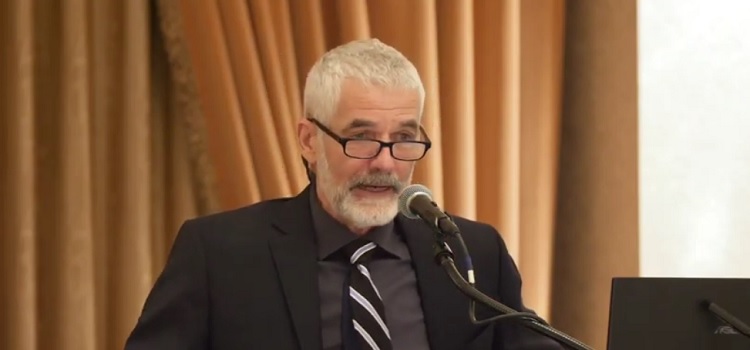
By Ray B. MD
Hi. I’m Ray, long-timer in addiction recovery and professional educator, disseminating information on the growing body of research evidence supporting recovery management, recovery-oriented care and peer-supported community recovery. I am privately an active member of a 12-Step home group while publicly a vigorous advocate for a range of recovery-supporting resources including 12-Step programs. The relatively recent Cochrane meta-analysis showing AA to be at least as effective as any other treatment modality [1] has been helpful, but even high-quality evidence such as this has had little effect on substance use and addiction policy and spending by legislators.
During over three decades of recovery I have also benefited from a variety of non-12-Step recovery therapies and programs. More than most of my medical colleagues, I know the powerful therapeutic benefits of active involvement in 12-Step fellowship and the many therapeutic components embedded within the 12-Step program of recovery. I am also painfully aware of some of the less-than-perfect aspects of 12-Step organizations, gleefully pointed out by some of my more critical mental health and medical colleagues. Having said that, AA is like democracy or the Canadian banking system: far from perfect but, considering all the options, it appears to be the best available alternative.
The tradition of anonymity is an essential one for the survival of an autonomous, non-hierarchal, non-professionalized organization like AA. Its public image or brand needs to be protected from the potential harm of people using their status as 12-Steppers to promote themselves or their commercial interests. It is not uncommon for newly sober members, fueled by their pink-cloud grandiosity, to appear in the media calling attention to themselves joyfully broadcasting the virtues of our program. And then, just as publicly, they come crashing down in humiliating relapse harming both themselves and the program. This lends credence to the erroneous view of addiction or alcoholism as a hopelessly relapsing problem akin to the Greek myth of Sisyphus, doomed to endlessly push his stupid boulder up the hill only to have it roll back down.
It has long been obvious in my medical practice, comparing addiction to the other chronic complex multifactorial lifestyle disorders such as heart disease, diabetes, obesity, hypertension and many types of 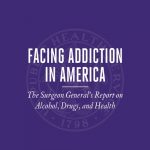 cancer, that addiction deserves equal status. Addiction and these other chronic diseases share common characteristics: biological, environmental and behavioural risk factors; gradual and varied progression; variable response to multiple treatment modalities; and, since they are chronic, treatment at best results in remission but without continuing care and significant lifestyle modifications, relapse is likely. But, more important, 40 years of treating patients with all of these common medical conditions has made it clear that addiction, including its manifestation as alcoholism or ‘alcohol use disorder’, is the disease with the best prognosis [2] of them all.
cancer, that addiction deserves equal status. Addiction and these other chronic diseases share common characteristics: biological, environmental and behavioural risk factors; gradual and varied progression; variable response to multiple treatment modalities; and, since they are chronic, treatment at best results in remission but without continuing care and significant lifestyle modifications, relapse is likely. But, more important, 40 years of treating patients with all of these common medical conditions has made it clear that addiction, including its manifestation as alcoholism or ‘alcohol use disorder’, is the disease with the best prognosis [2] of them all.
During the ongoing tragedy of the opioid overdose epidemic, the remarkable and achievable outcome of sustained recovery seems to have been overlooked. A big part of the problem is that we have been achieving these remarkable transformations in ourselves and fellow addicts and alcoholics tucked away in our communities of recovery, behind the veil of anonymity, far from academia, research and professional clinicians. So what if people, ‘the Normies’, don’t know about our often-miraculous turnarounds? The problem is they don’t know we are here, all around them, living in their neighbourhoods, working, volunteering, parenting and voting. They think they know the face of addiction. They see it in the news, in the tent cities and on the streets of our cities. Little wonder they have nearly given up on finding a solution beyond supplying addicts with less toxic drugs and safer ways to use them, calling that treatment.
Are there enough of us in recovery to make a difference? Epidemiological population surveys of the quality used to survey other health conditions indicate that somewhere around 9% of Americans and by logical assumption Canadians as well, once experienced sufficient symptoms to meet the diagnostic criteria for a substance use disorder or addiction, but no longer do [3]. That’s over twenty million Americans and two million Canadians in recovery! And here’s where it gets really interesting – by far the majority of these sober folks got well without formal treatment, many without attending mutual support groups like AA. Large cross-sectional research studies on this population subgroup, the Life in Recovery Surveys, performed in the US, Australia, the UK and Canada have produced strikingly similar results. In spite of our past histories of legal problems, family problems, work problems as well as medical and psychiatric complications due to addiction and its associated dysfunctional behaviours, once in recovery we become law abiding tax-paying citizens, reliable and productive employees and healthy people who are no longer a burden to the system. And we vote.
OK, so now we know we are a huge and healthy group of productive citizens. The kind of group any savvy politician would want to please. So why is recovery still so low on the political agenda?
When I was about 20 years sober I had a health scare forcing me off the couch (and away from my favourite junk food) and into jogging. As a person for whom moderation is not a natural state, one thing led to another and in a few years, I found myself running the Boston Marathon every year – 8 times to be exact. And every year along the 26-mile course from Hopkinton to Boston I’d be cheered on by tens of thousands of enthusiastic spectators, many of them wearing costumes and holding banners to show support for athletes wearing the same logos, raising money and awareness for chronic diseases, like cancer, stroke, diabetes and heart disease. But I didn’t see any costumes, banners or cheerleaders dedicated to addiction and recovery. Why not?
Addiction is the third most common cause of morbidity and mortality [4] and a huge driver of healthcare, social, vocational and legal system costs! What’s more, if the public, policy makers and legislators only knew what we survivors know, they’d realize that solutions to the massive substance use and addiction problem are available and effective. If we only did the public marketing of effective recovery-oriented treatment and community support programs and scaled them up to meet the massive needs out there it would make a huge difference.
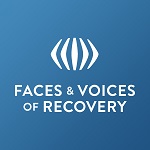 During the last 25 years the grassroots Recovery Movement has cautiously begun to leave the closet of anonymity with the formation of organizations like Faces & Voices of Recovery [5] and the production and release of high-quality documentaries like The Anonymous People [6]. This has attracted the attention of some influential people, resulting in pressure on the US Federal Government as well as some State and municipal legislators in a few regions to begin funding and developing supportive legislation to encourage growth of communities of recovery in what has come to be
During the last 25 years the grassroots Recovery Movement has cautiously begun to leave the closet of anonymity with the formation of organizations like Faces & Voices of Recovery [5] and the production and release of high-quality documentaries like The Anonymous People [6]. This has attracted the attention of some influential people, resulting in pressure on the US Federal Government as well as some State and municipal legislators in a few regions to begin funding and developing supportive legislation to encourage growth of communities of recovery in what has come to be 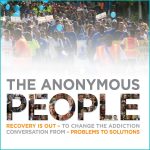 called, at least for now, the Recovery Oriented System of Care. Still, for the most part, we remain in our closets. But when we hide our recoveries we perpetuate the wrongheaded idea of addiction as a hopeless weakness, a character defect, simple bad behaviour. In other words addiction and recovery is our shared shameful secret – and that fuels stigma.
called, at least for now, the Recovery Oriented System of Care. Still, for the most part, we remain in our closets. But when we hide our recoveries we perpetuate the wrongheaded idea of addiction as a hopeless weakness, a character defect, simple bad behaviour. In other words addiction and recovery is our shared shameful secret – and that fuels stigma.
Back to the pros and cons of anonymity. It’s still important for the reputation and integrity of 12-Step programs that their traditions requiring public anonymity be preserved. But that should not prevent us from coming forward and joining together in visible associations and societies, showing the world that addiction is not a hopeless, perpetually relapsing disease of the brain but, like diabetes and heart disease, it is a complex lifestyle condition caused by a combination of genetics, behaviours and a variety of environmental factors, and it may be prevented, arrested and even partially reversed using a growing variety of evidence-based modalities of treatment and community-based recovery supports.
I made the decision over 35 years ago to continue as a sober and private member of a 12-Step program for my own recovery, while becoming a publicly vocal health professional, educating my patients, colleagues and interested audiences about addiction and recovery, using myself as an example or evidence of the possibility of long-term recovery. This is an invitation: please join me. If we want to decrease stigma and increase hope, it’s time to come out. Please join me in publicly celebrating recovery – while protecting the integrity and anonymity of our precious fellowships.
[1] Kelly J, Humphreys K, Ferri M, Alcoholics Anonymous and other 12-step programs for alcohol use disorder, Cochrane Database of Systematic Reviews 2020, Issue 3.
[2] Facing Addiction in America: the Surgeon General’s Report on Alcohol, Drugs and Health, 2016, US Dept of Human Services. https://addiction.surgeongeneral.gov/sites/default/files/surgeon-generals-report.pdf
[3] Kelly J. et. al. (2017) Prevalence and pathways of recovery from drug and alcohol problems in the United States population: Implications for practice, research, and policy, Drug and Alcohol Dependence, Vol. 181, Pp. 162-169.
[4] Canadian Substance Use Costs and Harms Scientific Working Group. (2020). Canadian substance use costs and harms 2015–2017.
[5] https://facesandvoicesofrecovery.org
[6] Williams G, (2013) The Anonymous People. https://www.kinolorber.com/film/view/id/1546
Ray B. MD (ret.) FCFP, FASAM
Associate Clinical Professor
UBC Faculty of Medicine
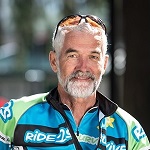 After practicing 12 years as a rural family doctor and over 30 years as a consultant in Occupational Addiction Medicine Ray retired from clinical practice to focus on the science and practice of peer and professional Recovery support. From 1990-95 he developed the UBC Addiction Medicine curriculum and wrote a chapter on alcoholism in Conn’s Current Therapy, a medical textbook.
After practicing 12 years as a rural family doctor and over 30 years as a consultant in Occupational Addiction Medicine Ray retired from clinical practice to focus on the science and practice of peer and professional Recovery support. From 1990-95 he developed the UBC Addiction Medicine curriculum and wrote a chapter on alcoholism in Conn’s Current Therapy, a medical textbook.
He’s a Recovery Coach trainer and consultant in Recovery Oriented Care. He served on CCSA’s National Recovery Advisory and Research Expert Advisory committees, designing and interpreting Canada’s Life in Recovery Survey (2015). In long-term recovery from addiction, Ray became a late life marathoner, an endurance triathlete and the outrageously proud grandfather of four-year-old grand-twins. This year Ray and Agnes celebrated 51 years of not-always-serene but, thanks in part to their continued involvement in 12-Step recovery programs, remarkably improved, marriage.
Our friend, John S., did a podcast with Ray and you can listen to that right here: Episode 93: The Science of Addiction and Recovery.

























I dissent from always calling AA a “12-step program”, which implies that Bill W.’s Steps are at the heart of AA. The real AA, the AA that works, consists of the 24-Hour Plan and the AA Fellowship. A day at a time we stay away from the First Drink and in the Fellowship we give each other moral support and practical advice on how to get sober, stay sober, and live a good life in sobriety. The Steps are irrelevant, and are even harmful in some ways.
I recently got involved with recovery advocacy after obtaining my certification as a Peer Support Specialist in Missouri. When I took the course, I learned a lot and met people from around my State working to make life better for people in recovery and help those who struggle with addiction. Becoming connected with these people on social media is what got me interested in advocacy work. Then after attending the First Annual Missouri Peer Summit hosted by the Missouri Recovery Alliance, I knew that I had to get involved.
Now, I am attending a meeting twice a month with other people in my State as part of the Recovery Advocacy Project. We are just starting, so I don’t know what role I will play, but there is a lot that I can do, and I’m excited about what I consider to be a new phase of my development as a person in recovery.
My views on anonymity have changed radically, and I am no longer anonymous. I will speak openly about my involvement in AA if it makes sense to do so, and when I do, I am speaking for myself, not AA. I’m not promoting anything, not myself, not AA, not anything. I am just living my life the way I choose to live it, thank you. I find the experience to be liberating, quite frankly, but it’s also not easy to break free of the stigma that I placed on my own recovery.
Let’s be clear. Anonymity for 12 Step programs is a public relations policy. AA’s founders decided it was a good policy, so they codified it in the Twelve Traditions. Note that they did not think it necessary to create a tradition about confidentiality, which in my opinion is far more important. Organizations like SMART Recovery will stress the importance of confidentiality while not insisting that members keep quiet in public about their involvement with SMART. They are doing just fine without an anonymity tradition.
I vote yes on confidentiality, but no on anonymity. What someone says in a recovery meeting is private, confidential, not to be repeated in public. A person’s participation in a recovery organization should never be disclosed by anyone other than that person if they so choose. As people gain confidence in their recovery, they may decide to be more open about it or not. It is up to them. It is their life.
Anonymity on the other hand isn’t necessary for public relations, and it only causes further stigmatization. It leaves people with the impression that they can counsel others on how they choose to live with their recovery. I’ve received such counseling myself. It used to bother me. Now, I just brush it off and move on with my life. I don’t need any organization or other person controlling how I choose to talk about recovery. Thanks, though.
Dr. Baker, I agree that people in recovery should come out openly if they are comfortable doing so. I also think that we are the best people to advocate for change because we understand the nature of the problem personally, and we are evidence that recovery is possible. You do tremendous work, and I have learned a lot from you. I just wish I could be as diligent about exercise as you are.
If readers of AA Agnostica want to learn more about the Recovery Advocacy Project, you can visit their website https://www.recoveryvoices.com/. Audio from the Missouri Peer Summit will be available soon at the Missouri Recovery Alliance website. There were some incredible speakers at that conference, which I thought was the best I ever attended.
My name is John Sheldon, I am a person in long-term recovery, and I’m not anonymous.
Thanks Roger for reprinting Ray’s fabulous talk from our gathering in Toronto in 2018, it’s as refreshing to read today as it was when we heard it three years ago.
Instead of focusing on AA’s 12 steps, which emerged from the Christian-inspired Oxford Group during the 1930s, I choose to emphasize the 36 universal humanist – spiritual if you will – principles which undergird them.
I always break my anonymity with individuals in and out of the rooms, which isn’t a violation of our anonymity tradition because it is not at the level of press, radio or television, or so I choose to believe.
Dr. Ray is an excellent communicator. Great piece.
AA Agnostica has done a great job of presenting us with alternative viewpoints. For me, today’s article evoked the memory of this offering from some years back:
Anonymity in the 21st Century
Well, I agree with everyone so far. John L, what would be a better moniker and how could we get it to catch on?
I don’t think the Steps are irrelevant; they are certainly optional as we see many good examples of AA sobriety from people who don’t work the Steps, or not all of them. And yes, “Twelve Step fellowships” does leave an impression that the Steps are what unite us and of course that isn’t true. But I hate the word, “podcast” too. It refers to people listening to audio on an ipod. Who does that anymore? It’s a bad brand because it doesn’t mean what it says.
But it stuck, so I make podcasts. But if we could come up with a moniker that describes the fellowship of people bound by common suffering with many paths of AA recovery I would be all for that.
And everyone has the right to speak out about their recovery. Anonymity isn’t a rule with consequences; it’s a premise, maybe a good one for a once fledgling peer support group. But AA isn’t fledgling; people won’t stop using AA if Brad Pitt or Russell Brand start drinking again. I don’t know how much of a reflection it would cast on AA, ourselves. The public understands personal agency, maybe better than we do.
But, it’s the same with the “12-step fellowship” or the podcast thing; anonymity is baked in. People do think it’s a rule and that speaking out is selfish.
I think millennials will be less connected to anonymity as a guiding principle. Social media natives are more public about everything, compared to us 55+ members. They aren’t even here, part of the discussion; they are on YouTube, What’s App, Instagram. Their downfall was likely chronicled online and I am sure they will post and re-post their recovery, including pictures with books and medallions and chips that identify them with NA, AA, etc. They don’t even see that as public domain; they’re just talking with their peeps. They know CNN isn’t scrolling their twitter feed for stories. To them, it’s like all of us talking AA in a coffee shop; is that a public forum? People can hear us. But no one’s listening. Youth feel the same way about their first and last name and picture of them and their 90-day chip.
I support everyone who speaks out and I hope more people do. But I wouldn’t shame people who don’t. There remains stigma which can have professional and personal consequences for some who hold themselves out as being a one-time user of controlled substances, illegal drugs or even who participated in repeated excessive drinking (maybe even drunk driving). So people’s right to be discreet and their right to speak out will be met with my approval. Anonymity is a bell that can’t easily be un-rung. Still, even for those of us who don’t have a public forum to advocate or who don’t wish to use it, there is plenty off record, behind the scenes that we can all do to improve the reputation and attitude towards people in recovery from addiction. And I think we should.
Sage advice, Joe. Typical of your clear-headed approach to all things AA.
Great article and thoughtful comments.
My traditional AA group used to hold open Sunday afternoon meetings in a large auditorium at Credit Valley Hospital just down the road from where I live in Mississauga. The auditorium was about 100 feet from the Emergency Department. Occasionally I’d see a nurse or doctor drop by to sip their coffees. I’d engage them in chit chat before or after the meeting. One nurse told me she would get upset at the carnage that would show up at the ER due to drunk driving, domestic assault etc. She heard about the meeting and wanted to be reassured there was hope. I was impressed and thought I could make a difference so I volunteered to help in the hospital alcohol and drug treatment program sharing my story to those seeking help. That led to me returning to university, getting my addiction counsellor accreditation and spending the next 10 years working with youth in the criminal Justice system.
I’m now retired but active in both my secular and traditional home groups. Because my family and friends know about my recovery I’ve been able to help them not as a counsellor but as a person in recovery willing to be there. If I had guarded my anonymity I might not have been approached by them. I fully appreciate it is up to the individual whether they want to “come out of the closet” or not. I get that. I’m also retired. That makes it easier to be open.